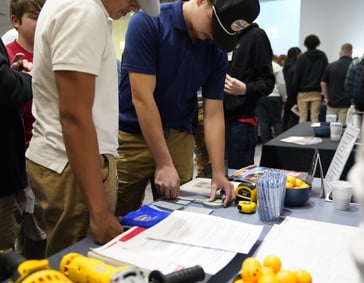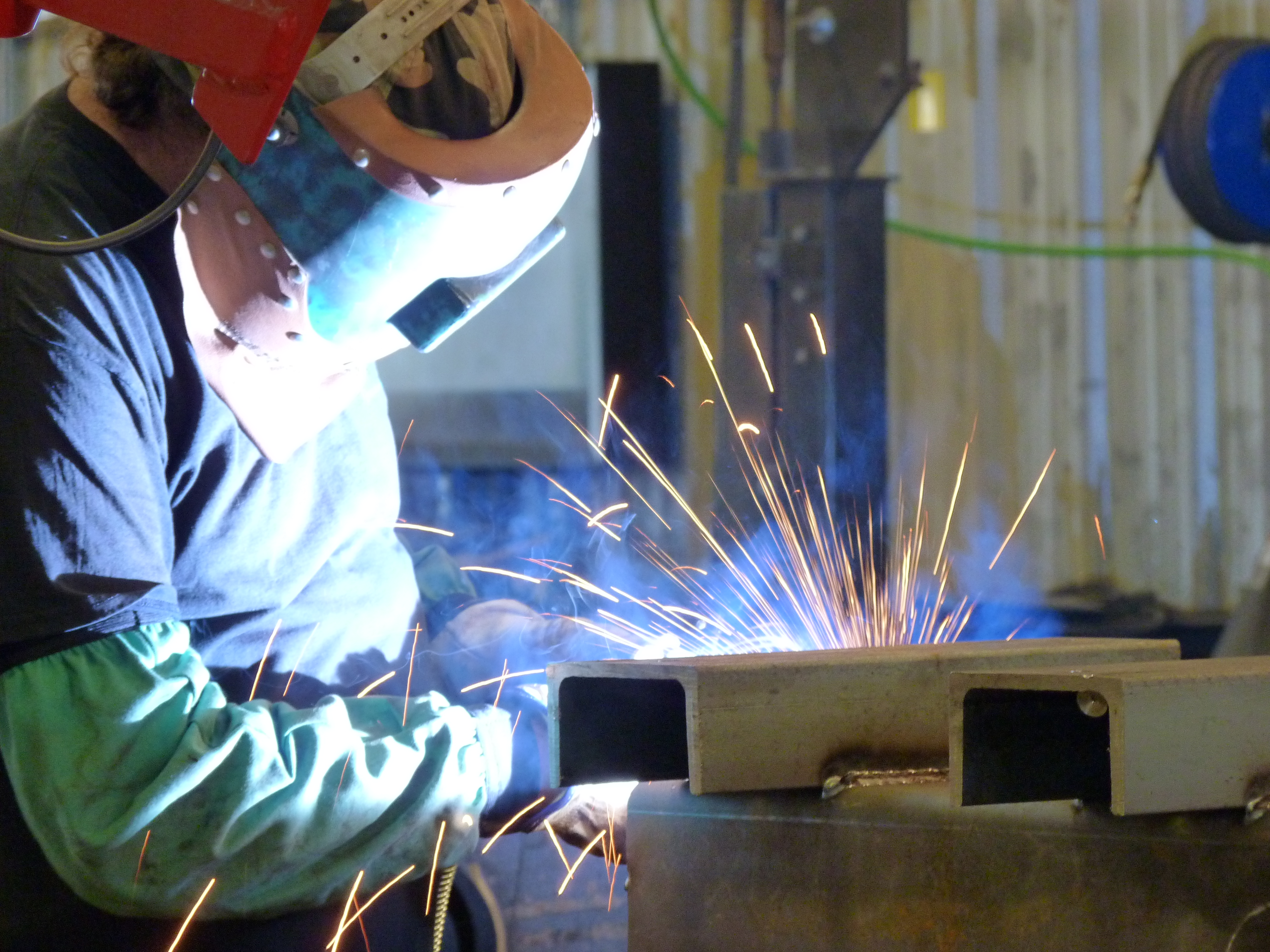October is a time to shine a spotlight on the unsung heroes of our everyday lives: manufacturers. Manufacturing Month is here, and it's not just about honoring factories – it's about celebrating the innovation, craftsmanship, and skilled workers who transform raw materials into our favorite things.
Hear what one of our Talent Managers has to say about the fulfilling world of manufacturing.
Types of Manufacturing
Manufacturing, a vast and varied field that extends across numerous industries, can be classified into different types depending on the processes and techniques employed. There are six main types of manufacturing:
- Repetitive Manufacturing: used when making repeat production at a certain rate. This process works when the same product is being constantly made. It has minimal setup and little changeover so operation speeds can be easily increased or decreased to meet customer demands. Common products made with repetitive manufacturing include electronics, automobile parts, and large appliances.
- Discrete Manufacturing: uses an assembly line but it is more diverse than repetitive manufacturing. It involves more changes of setup to allow for more modifications of the product, including separate parts. Toys, smartphones, automobiles, and furniture are produced through discrete manufacturing.
- Job Shop Manufacturing: uses production areas instead of assembly lines. It is often used for small-batch, custom products that are made to order. Large machinery, parts for industrial machinery, and fabrication shops are all examples of job shop manufacturing.
- Batch Process Manufacturing: driven by customer demand and the availability of raw materials. Usually produces identical products at a quantified amount within a specific timeframe. Some clothing, sporting goods, food products, and books are produced in batch process manufacturing.
- Continuous Process Manufacturing: runs all the time like repetitive manufacturing, but focuses on raw materials like gases, powders, and liquids. Oil refining, chemicals, fertilizers, and metal smelting are examples of products made using this process.
- 3D Printing: a newer process in the industry. It involves using various composites like plastic and metal to make three-dimensional products layer by layer based on a digital platform, not by manual labor.
Within each of these processes are many subtypes that differ depending on the industry, company, and product being made.
Jobs in Manufacturing
The world of manufacturing offers a wide range of job opportunities, catering to many different skills and interests. Whether just starting your journey in manufacturing or looking for a change, there is a role for everyone.
- Production Worker/Assembler: These employees are responsible for assembling products, operating machinery, and ensuring that products meet quality standards.
- Machine Operator: These workers run and maintain manufacturing equipment, such as CNC machines, lathes, mills, and other large equipment.
- Quality Control Inspectors: They check products for defects, ensure they meet quality standards, and document any issues or discrepancies.
- Maintenance Technician: Repair and maintain equipment.
- Process Engineer: process engineers analyze and optimize manufacturing processes often focusing on efficiency improvements and cost reduction.
- Safety Manager: Oversee safety protocols and practices within the facility to prevent accidents and ensure worker safety and compliance with regulations.
- Engineering/CAD Technician: Use computer-aided design software to design and program manufacturing processes and products.
- Welders: create strong and durable connections between metal pieces using techniques catered to the product.
As manufacturing embraces new technologies, job opportunities continue to evolve. Whether you enjoy hands-on work, management, or technological innovation, manufacturing can provide exciting opportunities for career growth and a chance to be a part of shaping the future.
Resources
A career in manufacturing can be an exciting journey filled with opportunities for growth, innovation, and impact. No matter what stage of the journey you may be on, there are many resources available to learn more and navigate through the field.
- The Manufacturing Institute offers many different programs, research, and events to help educate and support the manufacturing workforce.
- Local technical schools often host workshops for those interested to hear from professionals in various fields as well as gain hands-on experience within those fields to learn if it is a career they want to pursue. There are also courses available for students to take while still enrolled in high school to start earning credits early.
- Many companies, like DIS-TRAN Steel and Crest Industries, provide career days
 throughout the year. There are presentations from professionals, hands-on experiences, as well as job shadowing opportunities for those interested to see a more in-depth look at a specific job position.
throughout the year. There are presentations from professionals, hands-on experiences, as well as job shadowing opportunities for those interested to see a more in-depth look at a specific job position.
- Other local and state foundations provide career preparation events and programs to help guide those looking to pursue a career in manufacturing in the right direction.
Manufacturing Month is a reminder that this dynamic field encompasses a world of innovation, craftsmanship, and skilled individuals who contribute to almost every aspect of our lives. From the diverse types of manufacturing processes, each with its unique characteristics and demands, to the wide array of job opportunities catering to different skills and interests, manufacturing is a vibrant and ever-evolving industry. So, whether you're just starting out or looking to advance in manufacturing, take the next step, explore your passions, and be part of the dynamic manufacturing landscape that shapes the future. Your journey begins now.
To see what opportunities we currently have available, CLICK HERE.
